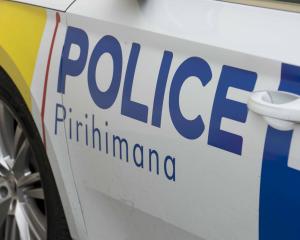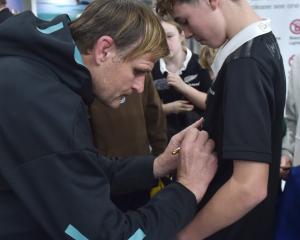
Helping prepare sea lions and penguins for operations and carrying out blood tests on them are just some of the skills budding vets get to put into practice at the Dunedin Wildlife Hospital - and the experience they gain working with wild animals in Dunedin is already paying off.
Forty-two students studying towards diplomas and certificates in veterinary nursing on campus have the chance to work at the Wildlife Hospital, which opened earlier this year.
Their tasks range from feeding and basic "animal husbandry" to administering anaesthetic. Student Kathryn Frankcom-Burgess said she was able to use the skills she had learned to handle a wild seabird blown in during a storm, when she was on placement in Auckland. The hospital workers were "treasure chests" of knowledge, she said.
"From feeding yellow eyed penguins, to watching surgeries on takahe, to helping a little blue penguin swim again - no day is the same," Ms Frankcom-Burgess said.
Fellow student Sophie Richardson said one of the highlights for her had been working with a sea lion which came in recently. The Wildlife Hospital has been busy since it opened in January, and the hospital called for volunteers earlier this year.
Veterinary nurse Angelina Martelli said in addition to the students, there was a pool of volunteers available from the community who came in on a regular basis.
Senior veterinary nursing lecturer Catherine Rice said all 12 of her diploma students, who were in their second year of study, volunteered at the hospital. While there, they were involved in a variety of tasks: from diagnostic testing to drip feeding and surgical nursing.
While their patients - such as penguins and kereru - were not what they would be dealing with in a normal vet clinic, the skills they learned were highly transferable, Ms Rice said.
"It’s really valuable to do something out of the ordinary. The principles are the same. It’s a valuable experience in terms of the basics."
About 180 veterinary students studying remotely had the chance to help out as well, if they wanted to.
As well as polytechnic volunteers, a student from Otago Girls’ High School has been volunteering at the hospital since April, through the Gateway programme which enables her to gain NCEA credits.
Ms Rice said the experience was something students would remember when they were older.
"You don’t see kiwi at the GP that often."











